Mozambique: Promotions to resume in public administration
Mozambique: New Hanlon book, Manica mine ban, election manipulation – By Joseph Hanlon
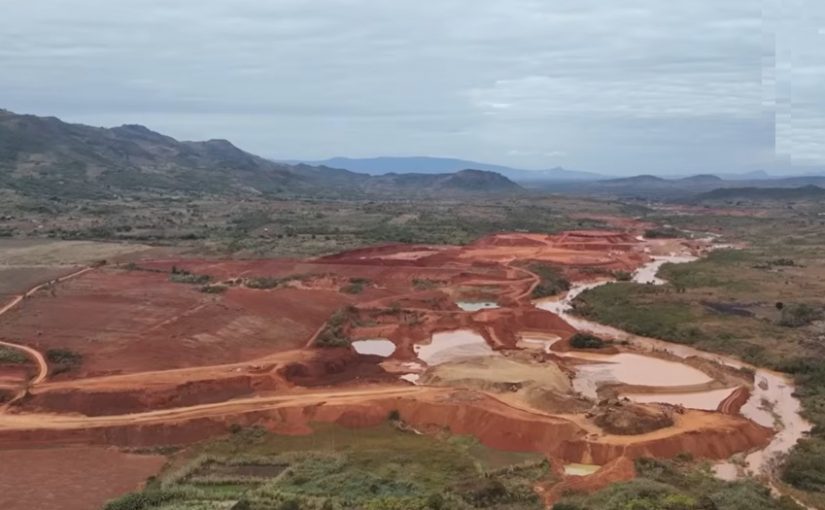
Screengrab: CIP
In this issue
- Mining banned in Manica
- Saying the unsayable abroad
- STAE, CNE and CC ‘manipulate’ elections
- Can Mozambique avoid a ‘Jacaranda Revolution’?
- New book launched this week
Moçambique recolonizado através da corrupção Como o FMI criou um estado oligárquico
(Recolonising Mozambique by corruption How the IMF created the oligarch state)
Available tomorrow
The book by Joseph Hanlon is in Portuguese only, and will be available at the OMR (Observatório do Meio Rural) annual conference tomorrow (7 October) where author Joseph Hanlon is keynote speaker (see below). The conference takes place at Montebelo Indy Village conference centre, Maputo, starting from 08.30.
The ebook is free and can be downloaded from https://bit.ly/MozambiqueColoniaNovamente
The printed book is already on sale in Maputo bookshops.
The book argues Mozambique is in crisis. There are no jobs for young people, who cannot see a future. Poverty and inequality increase. Cabo Delgado suffers a resource curse and civil war. The ruling party knows that it cannot win fair elections. How did this happen?
In this book, Joseph Hanlon documents the scandalous and unbelievable behaviour of the IMF and donors, which promoted the emergence of oligarchs who used political status to gain economic power, and who would serve foreign interests. Corruption was actually promoted, for example in bank privatisation. Some Mozambicans resisted. After Banco Austral was looted, an honest banker, Siba Siba Macuacua was named president, but he was thrown off the top of his 15-storey bank building. The assassins and looters are known, but no one was prosecuted.
Elites were tacitly given the right to manipulate contracts with the State, and the right to trade heroin and hardwood timber. The complicit silence of the IMF and donors in the face of the various scandals described in this book was seen as evidence that what was once called “corrupt” had become an integral part of the new “free market”. But in exchange the new oligarchs ensured that foreign companies and countries benefitted from the gas, coal, rubies and hydroelectricity. The oligarchs became the local administrators for a new form of colonialism.
Ordinary people were hit because the IMF imposed austerity, pushing most funcionarios below the poverty line, meaning teachers and nurses had to ask extra money so they could feed their children. This pushed “public” services into the “free market”, leading to widespread corruption, even in education, police, courts and army.
This books shows how, 50 years after independence, Mozambique has been recolonised. Will there be a new independence movement?
And the rest of the news
- Mining banned in Manica in Chapo’s first attack on oligarchs
All mining in Manica province was banned on Tuesday 30 September by the Mozambique Council of Ministers, which ordered the army to enforce the ban. The action was taken to stop serious pollution by gold miners in the hills in the west of the province bordering Zimbabwe. Council of Ministers spokesperson, Minister of State Administration Inocencio Impissa, said the problem was not merely with illegal, unlicensed mining.
“Uncontrolled mining is also perpetrated by licensed operators” who operate without environmental restoration plans or waste containment systems, and which abandon mining equipment after use and violate labour laws and workers’ rights. Impissa said there are critical levels of environmental pollution in some rivers, where the waters, which were once clear, have now become reddish, cloudy, and opaque, as a direct result of the washing of minerals, particularly gold, and the release of metallic and chemical waste, and excavated earth, without any treatment.
The Public Integrity Centre (CIP) last week issued an excellent video on the environmental damage (with English subtitles) and a report of their investigation (in English). CIP analysed water quality in the watershed of the Chicamba dam. It found mercury levels up to 16 times permitted levels. In the Chicamba reservoir which supplies drinking water to Chimoio, CIP found mercury at the maximum permitted level as well as arsenic. CIP also found social conflicts due to land expropriation and diverting entire rivers.
Cartels control Mozambique, including Manica mining
“There are cartels that control almost all activities in Mozambique, and we are facing yet another cartel that is destroying the country, hindering development and killing Mozambicans,” CIP director Edson Cortez warned in Chimoio last week. He added that the CIP investigation showed the fragility of “an unregulated extractive sector … captured by cartels” linked to Frelimo. “Interests of powerful people are in play” in Manica mining. (Savana 3 Oct)
Larger gold mines are owned by high officials and the families, notably relatives of past presidents. Some bring in Chinese companies to do the actual mining; others hire garimpeiros (artisanal miners). So far, the owners have been powerful enough to stop any inspection or regulation. President Chapo visited the area in May and banned five mining companies. He returned in September and admitted he had failed to stop what he called an “environmental disaster”. The Council of Ministers decision last week to ban all mining on the province, enforced by the army, was the response.
An inter-ministerial commission has been set up to deal with the Manica crisis. It will be headed by defence minister Cristóvao Chume. But Zitamar (1 October) points out that “Chume has also made headlines for being one of those Frelimo elites with interests in the mining sector – raising questions of a conflict of interest.” And CIP director Edson Cortez warned that, despite inspections, illegal mining continues at night.
The Manica gold rush
In two years the price of gold has doubled from $60 per gram to $120 per gram causing a gold rush in Manica. Gold in Manica occurs in layers of sediment of clay and sand. Small rivers are diverted by the miners to wash the sediment to separate the gold, and huge amounts of waste dirt are then washed into rivers, making them muddy. The Secretary of State for Manica Province, Lourenço Lindonde, said in a visit to the Chicamba dam on 13 September that electricity company EDM had cut in half electricity production because mud was clogging the turbines which had to be stopped and cleaned more often.
Mercury, cyanide and arsenic are found in the river and Chicamba lake water. Arsenic is often found with gold and is in the mud being washed down the river. Mercury is used in small-scale gold mining to extract gold from dirt and other material; mercury binds to gold particles which are then heated to vaporize the mercury and isolate the gold. Cyanide is also used for this and has been detected in Chicamba water. Borax (sodium tetraborate), a mineral salt used in laundry, has been shown to be a safe alternative to mercury, and does no environmental damage, but gold miners need to be trained to use it.
The mud, mercury and arsenic pollute the drinking and irrigation water in rivers used by local people and also kill the fish which are an important food source.
- Saying the unsayable abroad: Chapo calls for negotiations and for growth to benefit all
There is a long tradition of senior Mozambicans saying things abroad that they would not say in Mozambique or in front of the Frelimo elite. These are reported in Mozambique, and perhaps it is a way of floating ideas to see if they are shot down. Challenging two shibboleths, President Daniel Chapo used his New York trip to say development is not just for a small group, and an Al Jazeera interview to say Mozambique needs to talk to terrorists.
“The Mozambique we want is a country that grows sustainably and inclusively, a country where development – especially human development – is not a privilege for some, but a right for all Mozambicans,” he declared at the at the 22nd African Conference at Columbia University, New York, on 19 September. The President emphasized that such growth must be of quality, respect the environment, and promote the participation of all communities, contributing to a more balanced and just society. (Diario Económico, Maputo, 21 Sept)
And in an interview with Al Jazeera (English 25 Sept) President Chapo said negotiations with the insurgents in Cabo Delgado is essential. “We can pursue this path of dialogue and find some solution that brings an end to the insurgency. Dialogue is the basis for resolving any conflict . Throughout the world, experience shows that any conflict ultimately ends at the negotiating table.” He went on to point out that to end the independence war “we had to sit with the colonialism” and “to end the war of 16 years we had to sit down to achieve the General Peace agreement.”
Are these suggestions of radical policy changes only “para ingles ver” – to fool the foreigners – or is the new president seriously proposing necessary policy changes that will be resisted by the some of the Frelimo elite?
- First CNE head says STAE, CNE and CC ‘manipulate’ election results and ‘decide who wins’
“Those who organise elections, including the Technical Secretariat for Electoral Administration (STAE), the National Electoral Commission (CNE) and the Constitutional Council (CC), all manipulate the data. They use their power to manipulate people’s minds,” said Brazao Mazula on 1 October. “I was the first president of the CNE, and I expected that 30 years later, things would be much better than what we did in 1994. I realise that since 1999, things have been getting worse until today,’ he said. And he cited vote theft in the 2024 elections.
“The people who run the electoral process are not serious, they manipulate the process and decide who wins. Citizens are serious, they voted because they are serious, so why manipulate their votes? We must respect the citizens’ votes,” he said.
“The results can be announced in three days. The rest is manoeuvring, because the more days there are, the more manoeuvring is done,” he pointed out. In the 2024 elections, he said, the CNE knew the process was not right, but nevertheless forwarded it to the CC, knowing in advance that it is not the role of the CC to count votes. This, according to Mazula, leads one to believe that the results are manipulated.
According to Mazula, the problem stems from the partyization of all state institutions. “The country is very partisan. We are afraid to act. When there is truth, we run away from the truth,” he said. The solution, he argued, lies in a profound reform that goes beyond institutions. “It is necessary to depoliticise our minds and our thinking.” (MediaFax 2 Oct, Savana 3 Oct)
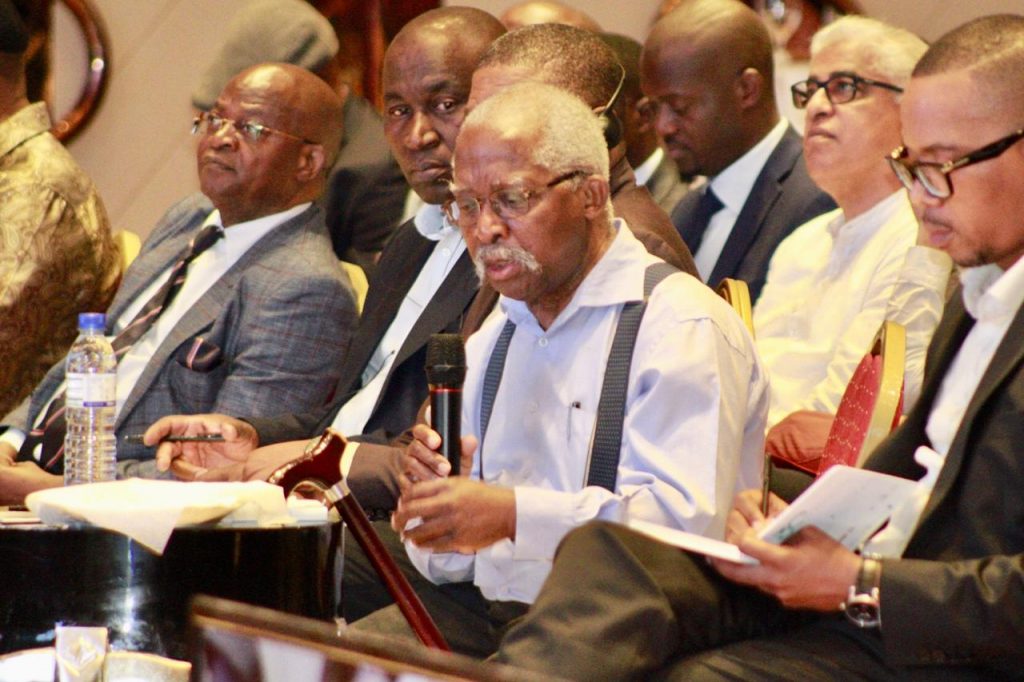
Mazula was speaking in Maputo during the Conference on Electoral Democracy in Mozambique organised by the Institute for Multiparty Democracy (IMD) and the MASC Foundation.
- Can Mozambique avoid a ‘Jacaranda Revolution’?
The editor of this newsletter, Joseph Hanlon, is the keynote speaker at the OMR conference tomorrow (7 October) at 08.30 in Indy Village, Maputo. This is a summary of what I expect to say. There is a full text in English and Portuguese which can be downloaded.
The end of fascism in Portugal was called the “Carnation Revolution” because the government collapsed and not a shot was fired. Mozambique won independence, but 50 years later Mozambique is in crisis. Historic research shows that three things cause states to collapse. One is increasing inequality. The second is the concentration of political and economic power by a corrupt elite. And the third is lack of democracy. Fascist Portugal then and Mozambique today fit this pattern. Ordinary people feel marginalised and are restless. There is a civil war in Cabo Delgado. Is a “Jacaranda Revolution” inevitable here?
There are many failing states, and some, including Mozambique, were partially shaped by outside forces. The IMF and donors and global corporations set out to recolonise Mozambique. And they did it by forcing part of the Frelimo elite to become the new colonial administrators. The G7 group of seven western industrialised countries decided to impose what was called “shock therapy” on the former countries of the Soviet Union and on Mozambique. It included privatisation, free markets, and austerity and led to the creation of oligarchs. And in 2001 the World Bank’s Operations Evaluation Department did a secret report on Mozambique which concluded that “After 14 years of reforms, the main objective of reducing poverty substantially through sustained private sector led growth, has not been achieved.” This secret evaluation admits that for 14 years the World Bank was knowingly lying to Mozambique.
Recolonisation used compliant oligarchs to export Mozambique’s resources, starting with the megaprojects. The next decade saw the Cabo Delgado resource boom, with natural gas, rubies, graphite and other resources. Oligarchs and their families gained land for exploration and then sold most to foreign mining companies to actually exploit the mines. Tens of thousands of families were pushed off land. Young people were angry, and in 2017 the civil war began. President Nyusi refused to talk to “terrorists” and did not hear their message – that they only wanted jobs.
Even the donors heard the message. The World Bank and European Union offered a $2 billion dollar development programme for Cabo Delgado, if the government admitted that there were internal causes of the war. President Nyusi refused.
Discontent grew and Frelimo knew it could not win a fair elections. Municipal elections in 2023 were fraudulent. I saw the official documents and know Venâncio Mondlane was elected Maputo president, but Frelimo said he lost. The 2024 elections were so manipulated that no one knows who won. Young demonstrators across the country demanded “electoral truth” and then jobs and a future; 350 demonstrators were shot and killed by police.
What happens now? If the crisis worsens will the oligarchs flee and let the government collapse? Or could the Frelimo elite listen to its children and grandchildren and return to the goals of 50 years ago, and try again to build a nation that benefits everyone.
By Joseph Hanlon


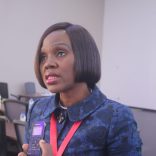
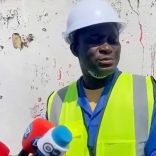
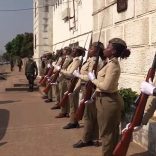

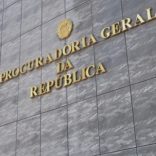

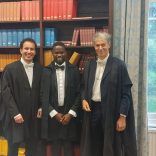
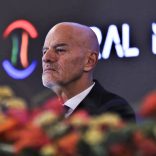



Leave a Reply
Be the First to Comment!
You must be logged in to post a comment.
You must be logged in to post a comment.